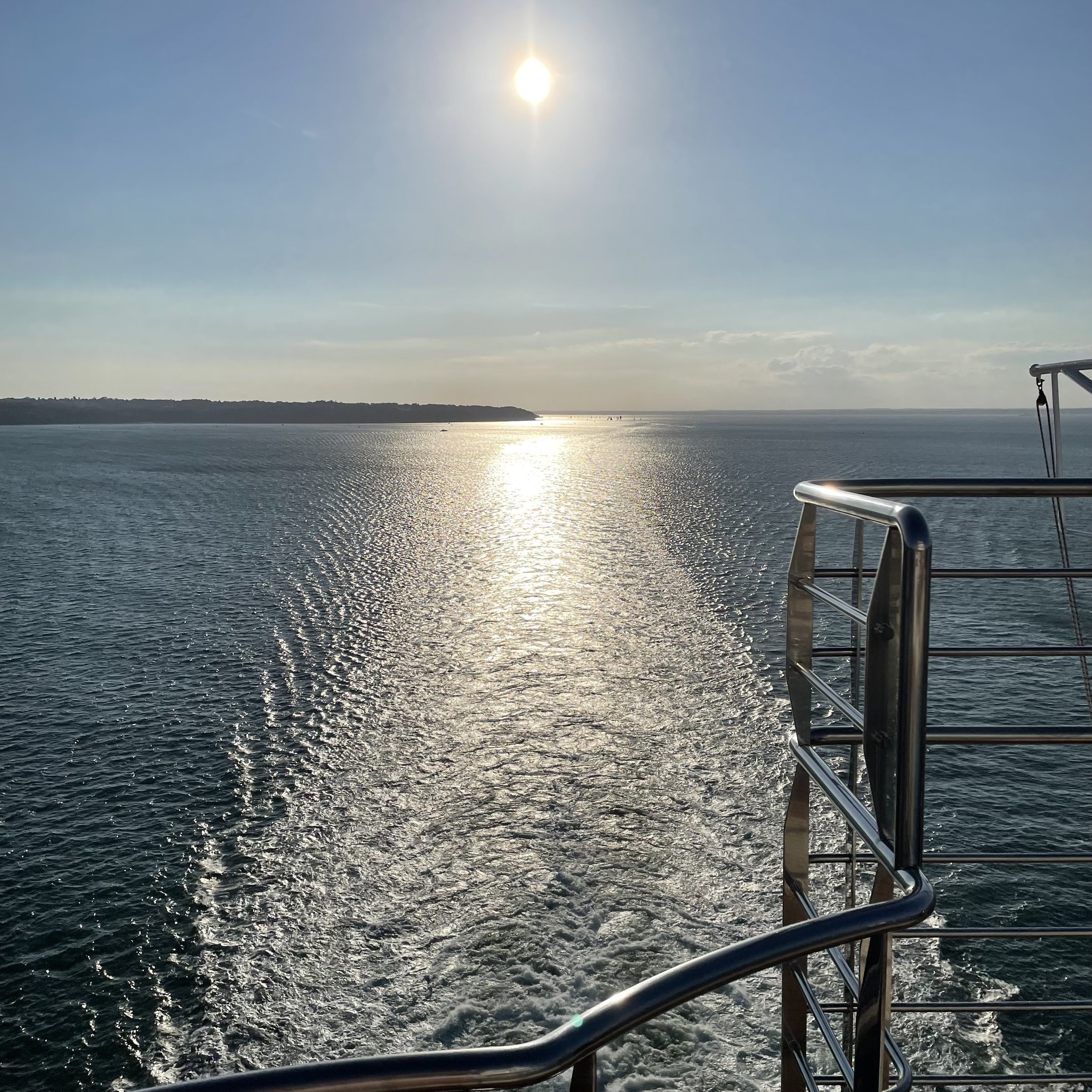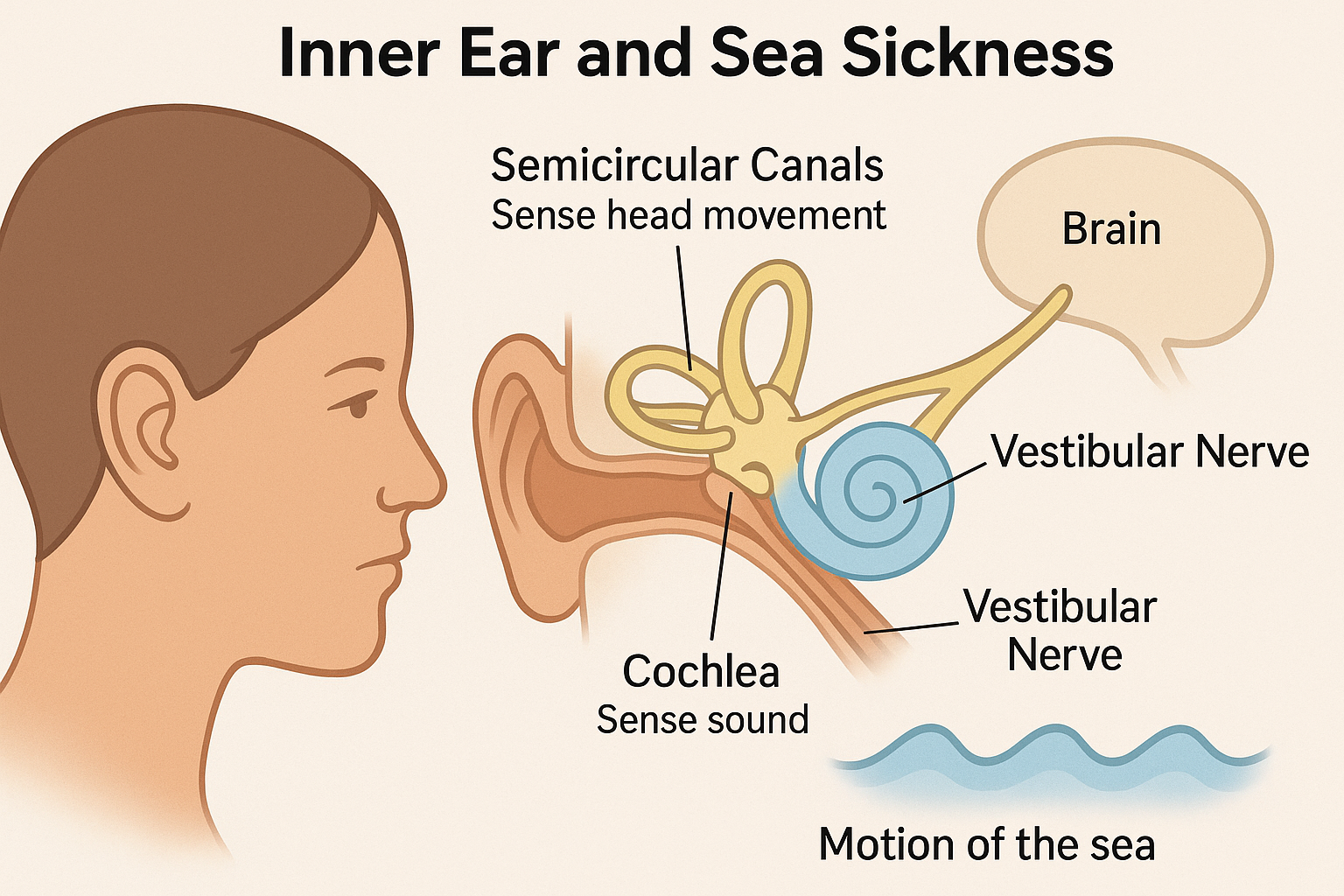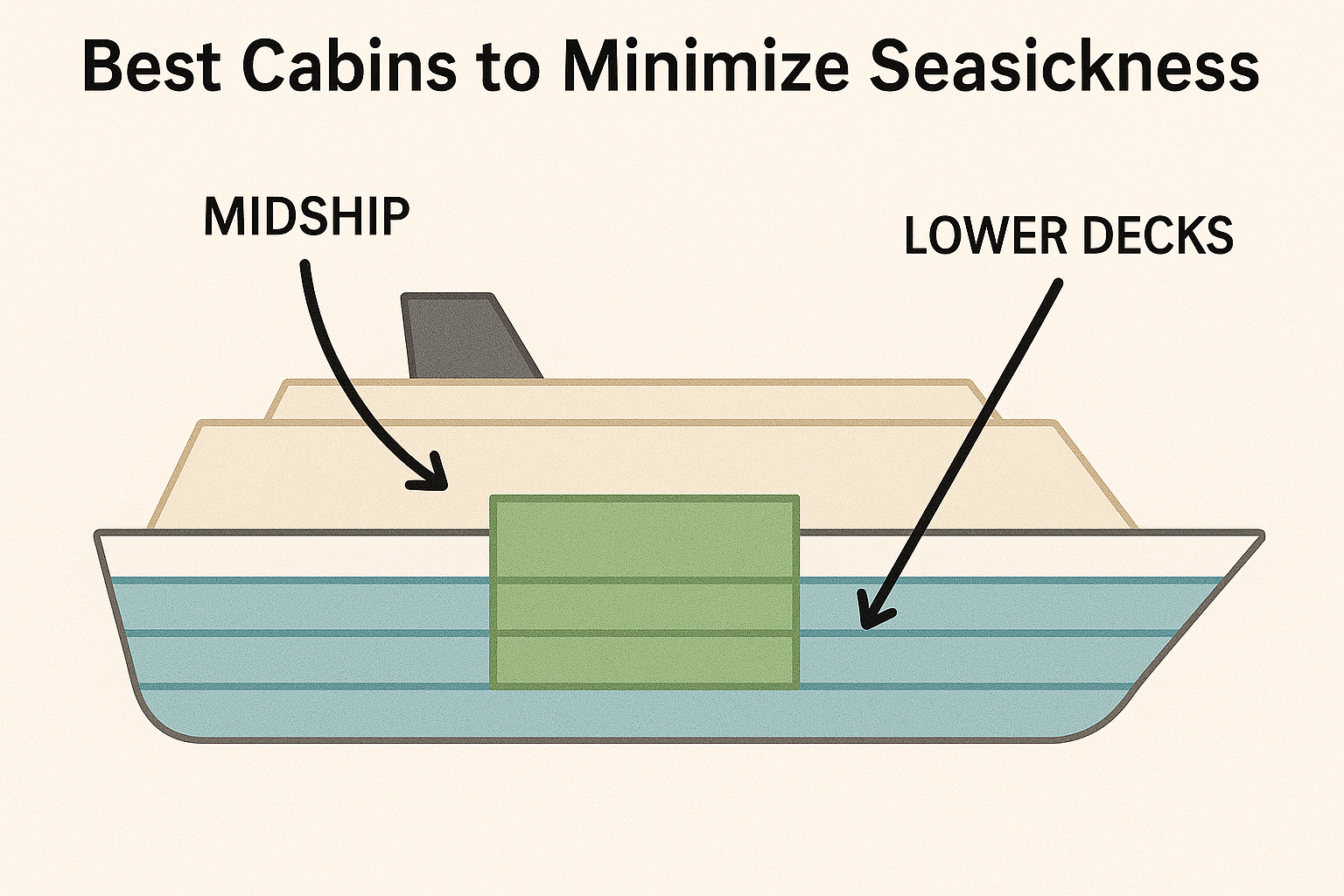Will I Get Sea Sick on a Cruise?- Updated 2025
Seasickness - Is it Inevitable On A Cruise?
Will I get seasick on a cruise? For those who have never cruised before, this is often a major concern and one of the most frequent questions I get asked. Perhaps their only previous experience of sailing the high seas was on a rocky ferry in poor weather (mine was on a Dover to Calais Hovercraft and I vowed “never again” - thankfully I changed my mind). In this article I will try to put your mind at rest on how to prevent seasickness on cruise.
Although not impossible to succumb to sea sickness on a cruise, it is highly unlikely that you will feel unwell - in fact most people do not get seasick under normal circumstances, and I speak from experience, as a long sufferer of motion sickness. Like many newbies, I was petrified of being unwell on my first ever cruise. I went armed with a whole range of preventative pharmaceuticals, but quickly realised that I could hardly feel the ship moving at all - even across the infamous Bay of Biscay. Modern ships have state-of-the-art facilities such as stabilisers to minimise movement, and navigational equipment which allows them to steer around stormy weather.
What Causes Sea Sickness?
Inner Ear & Sea Sickness Diagram. Image: AI Generated
Also known as “Mal de Mer”, seasickness occurs when your brain receives conflicting signals from your inner ear (which senses motion), eyes (which may not see the motion), and body. This confusion triggers nausea, dizziness, and discomfort. It’s worsened by factors like rough seas, fatigue, stress, or strong smells.
How Can You Prevent Sea Sickness?
How to avoid seasickness at sea - here are some sea sickness cruise tips.
If you are prone to motion sickness, and your ship encounters heavy seas, then you may feel somewhat nauseous, although there are a few steps you can take to help avoid this.
Firstly choose a larger ship - smaller ships react more to the sea conditions and you may feel some movement.
Book a cabin in an area less likely to cause motion sickness (see below).
Try to spend as much time as you can on deck as fresh air, especially a sea breeze will help you feel better.
If you look at the sea it will make you feel worse. Use the horizon as a focal point to maintain your equilibrium.
While you are getting used to the movement, avoid using binoculars, or your camera and try not to read for long periods whilst your brain adjusts to conditions.
Keep out of the sun as overheating can exacerbate the condition - find some shade or air conditioning which should help.
Avoid sitting close to food outlets as strong cooking smells can add to your problem.
Whilst the perfect location for an after dinner tipple, avoid sitting up in the crows nest bar (or equivalent) at the top of the ship as the motion is more noticeable there, and you will be more acutely aware of it.
If you are worried, take some precautionary medication (sea sickness tablets) with you, (although you can usually get these on board), or try an alternative remedy such as wrist bands or eating ginger.
Best Cabin Location to Minimise Seasickness
Ideal cabin zone to minimise seasickness. Image: AI Generated
Select your cabin carefully; the location of your cabin can determine how much you feel the ship move. Cabins mid-ships (in the middle of the ship) and lower down are best. If the sea is a little rough, the higher the deck the more it will be felt, Those cabins at the very front or very back will also feel the movement more.
If you prefer fresh air, select a cabin with a balcony.
Onboard Technology that can Help with Sea Sickness
Cruise ship stabilisers can reduce roll motion by up to 90%.Active fins, a common type of stabiliser, are highly effective at reducing the side-to-side rolling motion of the ship. This reduction in roll significantly improves passenger comfort and can also enhance the vessel's safety and resale value, according to Quantum Marine Stabilisers.
What is the Best Thing for Sea Sickness?
A range of seasickness remedies. Image: AI Generated
The best remedies for seasickness vary by individual but include:
Sea Sickness Medications
Over-the-counter (OTC): Check with a pharmacist for latest and safest options.
Prescription: Visit your doctor prior to sailing who may be able to prescribe stronger medication.
Natural Remedies for Seasickness
According to frequent sailors posting on platforms such as Cruise Critic and Reddit, these are the most effective natural remedies to help with sea sickness:
Ginger: In tea, capsules, or candies to reduce nausea.
Green Apples: Some cruisers find green apples helpful for settling the stomach.
Fresh Air: Getting fresh air on deck can help alleviate symptoms.
Peppermint: Peppermint tea or candies may also help with nausea.
Acupressure Bands: Worn on wrists to stimulate pressure points.
Behavioural Strategies to help with Seasickness
Focus on the horizon or a stable point.
Stay in the centre of the boat where movement is less intense.
Get fresh air and avoid strong smells or heavy meals.
Experiment with a combination to find what works best for you.
If the worst happens and you find yourself suffering badly, you can visit the ship’s medical centre, although beware that this will incur a charge.
How Long Does Sea Sickness Last?
Seasickness typically lasts anywhere from a few hours to a few days, depending on the individual and their circumstances:
Short Trips: Symptoms may subside once the motion stops, such as when you return to stable ground.
Prolonged Exposure: On longer journeys, many people adapt after 1–3 days as their brain adjusts to the motion (a process called habituation).
After the Trip: Some may experience “land sickness” (mal de débarquement), where symptoms like a swaying sensation persist for hours or days after leaving the boat, though this is less common.
How to stop motion sickness after it starts?
To stop motion sickness after it starts, focus on stabilising your senses by looking at the horizon or moving to the centre of the ship. Lie down or close your eyes to reduce sensory conflict, and get fresh air to avoid strong smells. Remedies like ginger (tea, sweets, or capsules), acupressure wristbands, or medications can help relieve symptoms. Stay hydrated with water or clear fizzy drinks, and practice deep breathing to calm nausea. Acting quickly can prevent symptoms from worsening.
How Do You Know When Bad Conditions Are Expected?
Listen to the daily Captain’s message from the bridge (usually at 9 am and/or midday) as he will explain the current and anticipated weather and sea conditions and you may be able to preempt sickness by taking your medication.
A sure, but ominous and unwelcome sign that things may get a bit rocky is when sick bags are put out in stairwells, and public areas.
In conclusion, I want to reassure you that the majority of people taking a cruise rarely, if ever, get seasick and by taking the steps above you should be able to enjoy your cruise in good health.
~~~~~~~~~~~~~~~~~~~~~
In summary, the majority of those taking a cruise are unlikely to succumb to seasickness. If you follow the advice above, and take any necessary precautions, you should be able to sail with confidence. However, if you still have concerns, consider the additional advice from Cruise Lines International Association (CLIA) experts, and maybe try a more gentle river cruise as a first step.
Bon Voyage!




